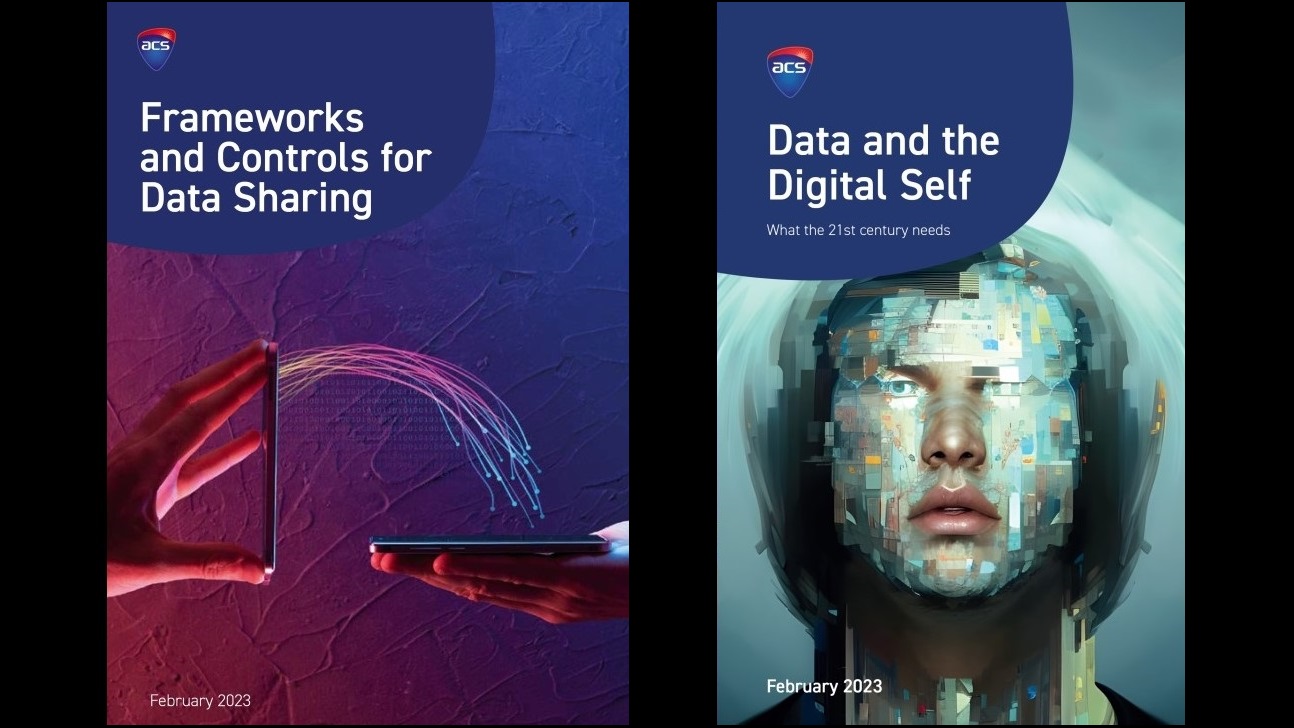ACS has launched two new publications focussing on data sharing and privacy.
The first publication, Data and the Digital Self: What the 21st century needs is a new type of publication for ACS – a paperback format short book comprised of forward-looking essays on privacy and identity in the coming century.
The second, Frameworks and Controls for Data Sharing, is the fifth and final entry in a long running series from ACS, highlighting ground-breaking work in Australia on safe data sharing techniques.
Both books were edited by ACS Immediate Past President, Ian Oppermann.
Data and the Digital Self
This forward-looking book dives into some of the key issues around identity and privacy in Australia, and some of the issues that Australia will be tackling in the near and medium-term future.
Written by Ian Oppermann, Lyria Bennett Moses, Kimberlee Weatherall, Theresa Anderson and Peter Leonard, the book looks at the challenges of digital identity and consent; the limitations and future of privacy law; and the critical issue of trust in the 21st century.
“As technology and digital solutions increasingly play a role in moving the economy and society forward, they become pervasively embedded into business operations, across key service offerings and into our personal lives,” the report notes.
“By 2030, it is likely to become a self-reinforcing process, accelerated by increased use of artificial intelligence (AI)… our dependence on technology will make cyber security crucial to navigating the associated risks and opportunities ahead.”
ACS members can download the book here.
Frameworks and Controls for Data Sharing
The new report is the conclusion of a long-running series for ACS, highlighting the organisation’s extensive work on data sharing frameworks.
The series began in 2017 with Data Sharing Frameworks, and continued with Privacy in Data Sharing: A Guide for Business and Government (2018), Privacy-Preserving Data Sharing Frameworks (2019) and Sharing Data in Trusted Frameworks (2021).
The series focuses on the critical issue of shared data – both the benefits that can be derived from it and the risks associated with it.
In particular, the series offers a set of solutions for reasonably de-identifying data so that it can be shared safely and usefully.
This volume “brings it all together”, says primary editor and ACS Immediate Past President, Dr Ian Oppermann.
“As governments and businesses look at how they use and share data, the principles laid out in this paper provide an important roadmap for all private and public sector organisations in the best practice in managing the information they have been trusted with,” he noted.









